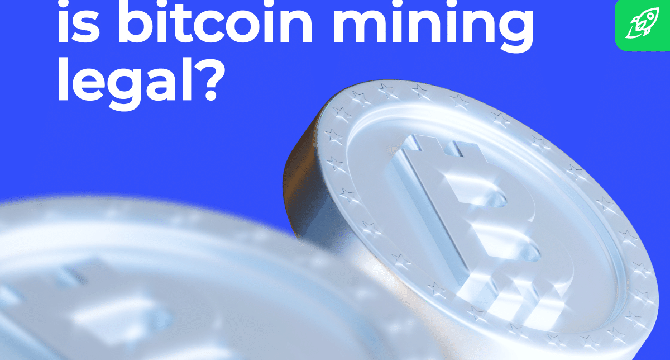Changelly
1M
288

Image Credit: Changelly
Is Bitcoin Mining Legal? Things You Should Know about Bitcoin Mining
- Bitcoin mining is legal in most parts of the world, but regulations are evolving, with nuances in different countries.
- Bitcoin is a decentralized digital currency that operates outside traditional banking systems.
- Bitcoin mining involves using computing power to validate transactions and add them to the blockchain.
- Mining rewards miners with newly generated coins for solving complex mathematical puzzles.
- Bitcoin transactions involve no middlemen and are conducted directly between users.
- Blockchain technology ensures secure and transparent storage and transfer of data.
- Mining rewards, tax implications, and regulations vary by country, such as the USA, India, Canada, Australia, and New Zealand.
- The mining process requires specialized hardware, software, and possibly joining mining pools for efficiency.
- Bitcoin mining carries risks like high electricity costs and regulatory uncertainties.
- Mining profitability depends on factors such as electricity costs, hardware efficiency, and market conditions.
Read Full Article
17 Likes
For uninterrupted reading, download the app